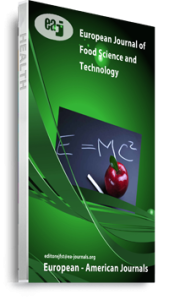In Ethiopia, there are various traditional foods with potential to be developed in to nutritional foods. It is important to reduce the incidence of malnutrition, through supplementation and development of nutritious food from locally available resources such as enset plant and flaxseed crops. This study was, therefore initiated with the objective to improve the nutritional quality of kocho products by combining with flaxseed. The study was conducted with two factors, flaxseed varieties and blending ratio (95:05, 90:10, and 85:15) of kocho to flaxseed flour with control 100% kocho flour using completely randomized design and treatment means were tested at significance level of p < 0.05 with three replications. Assessment was made on the proximate composition, mineral content and sensory acceptability of food in the form of bread. Flaxseed flour had influence on moisture, ash, crude protein, crude fiber, crude fat and energy content of breads. With 15% flaxseed substitution, percentage moisture, ash, crude protein, crude fat, and crude fiber and energy (kcal) were to 5.12, 2.14, 4.30, 6.78, 4.01 and 388.82, respectively. Carbohydrates were high for control. Kocho bread blending with flaxseed flour at 5%, 10%, and 15% showed a significant (P < 0.05) effect on minerals. With 15% flaxseed substitution Ca, P, Zn, and Fe contents (mg/100g) to 123.30, 136.85, 1.89 and 2.99, respectively. Sensory acceptability of the product increased with increasing level of flaxseed flour supplementation. In conclusion, Kocho bread has lacking nutritional content hence, blending of flaxseed in production of Kocho flat bread to improve nutritional, mineral and sensory acceptability of Kocho-flaxseed bread.
Keywords: Enset, Flaxseed, Proximate, kocho-flaxseed bread, sensory acceptability.

